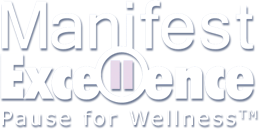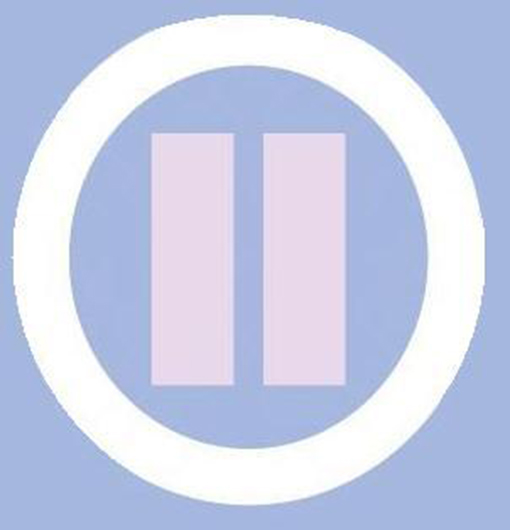Contrary to popular belief, being healthy means more than not being sick. It also means more than eating well and exercising.
The word “health” stems from an Old English word meaning “whole.” Somehow our society moved away from this understanding. Now many people think the term simply applies to your body. Specifically, many people think being healthy means the absence of disease in the body. It actually means much more than that.
Being healthy means functioning at your best physically, mentally, emotionally, socially, and spiritually. This is the wholeness indicated in the origin of the word. Functioning at your best does not mean seeking or maintaining a state of perfection. Different people have different optimal states. Someone with a disability can be optimally healthy…for them. They simply have a different baseline than someone who does not have a disability.
The level of optimal health might even fluctuate within the same person at various points in her life. For example, a healthy woman might be able to ride a bike at peak speed for fifteen miles, but if she is eight months pregnant she might not be able to comfortably sit on a stationary bicycle. This doesn’t mean she isn’t healthy, it simply means her baseline has temporarily shifted.
There are five arenas that primarily impact health. The first arena is the most obvious. It’s the physical arena. This is not only the body but also the tangible things you put in, on, or do to your body. This category includes things people readily associate with physical health, like nutrition and fitness, as well as less obvious things in your physical environment like pets, toiletries, and cleaning solutions.
It also includes environmental things like air pollution and water quality. All these factors can impact your health. For example, people who live in rural areas typically have healthier lungs than people who live in crowded cities. Exposure to indoor pollutants from carpets, paint, or household cleaners might adversely affect someone sensitive to toxins. A child with eczema might be more sensitive to certain soaps, lotions, and detergents.
The next two arenas, the mental arena and the emotional arena, are often confused with each other. They have distinct meanings though they closely influence each other. The mental arena is the arena that deals with thoughts and beliefs. This arena is impacted by mental constructs such as judgments, opinions, worry, and mental chatter. Mental chatter is the little voice inside your head. Your inner voice can either be a major asset in creating health or a major obstacle. It’s an asset if your natural tendency is to dwell on positive thoughts that encourage and uplift you. It’s an obstacle if you tend to dwell on negative thoughts that discourage or deplete you.
The emotional arena is the arena of feelings. Many people confuse thoughts and opinions with emotions. Emotions are feelings such as joy, sadness, love, fear, or jealousy.
People often blend the mental and emotional arenas when they use the statement, “I feel that…” Usually they actually mean, “I think that…” For example, the statement, “I feel that you should have listened to my opinion,” is inaccurate. An accurate statement would either be, “I think you should have listened to my opinion,” or “I feel angry that you didn’t listen to my opinion.”
The fourth arena is the social arena. This is the arena that involves relationships, support systems, hobbies, and work. This arena can promote health by bringing balance and satisfaction to your life. It can also indicate that you’re at risk for imbalances in other arenas. For example, if someone is physically fit, eats well, exercises regularly and is generally a happy person but is a workaholic without any supportive relationships, that person is probably not living their best life. They would probably be even happier and more energetic if they had a balanced social arena. They are also at increased health risk because they have no social or emotional support system if difficulties arise in their life.
The last arena is the spiritual arena. This is the arena that deals with your values and life philosophy. It is the arena that helps you make sense of things, feel more grounded, and have a sense of peace about your life. For many people, this comes from their religious beliefs, but the spiritual arena is not about religion.
It is about the core beliefs that motivate and inspire you to live your best life. A balanced spiritual arena can help you deal with challenges in the other arenas. For example if someone must deal with cancer (physical), a negative self-image (mental), depression( emotional) or a divorce (social), having a strong spiritual arena can help them cope. Conversely, someone who has the other four arenas balanced, but an unbalanced spiritual arena, might feel extremely frustrated or think their life is meaningless.
Considering all the arenas that impact health will help you become truly healthy. It can also help you focus on well-being rather than simply focusing on preventing, treating, or curing illness. Since we usually get what we focus on, it’s better to focus on “being healthy,” instead of “not getting sick.”
Be well!
Bestselling author, dynamic holistic wellness speaker and wellness luminary Dr. Donna Hamilton, MD, has a mission to help everyone live the healthy, satisfying lives we’re all meant to lead. Dr. Hamilton passionately teaches what being healthy really means and how to do it in a way that fits your unique needs. Her easy, practical tips assist you with assessing the entire wellness landscape and appropriately planning your personal wellness journey. A wellness thought leader, she champions a comprehensive approach to health by addressing mental, emotional, social, spiritual & physical well-being with a simple and potent message. Her book Wellness Your Way offers a practical strategy to assist readers in creating a happier, healthier life. For more information or to book Dr. Hamilton for speaking engagements visit www.ManifestExcellence.com or www.DonnaHamiltonMD.com
- 10 Quick, Easy Holiday Self-Care Tips - December 15, 2017
- Health Benefits of Kindness and Compassion - June 3, 2017
- Why Self-Care is Good for Your Health - May 10, 2017






